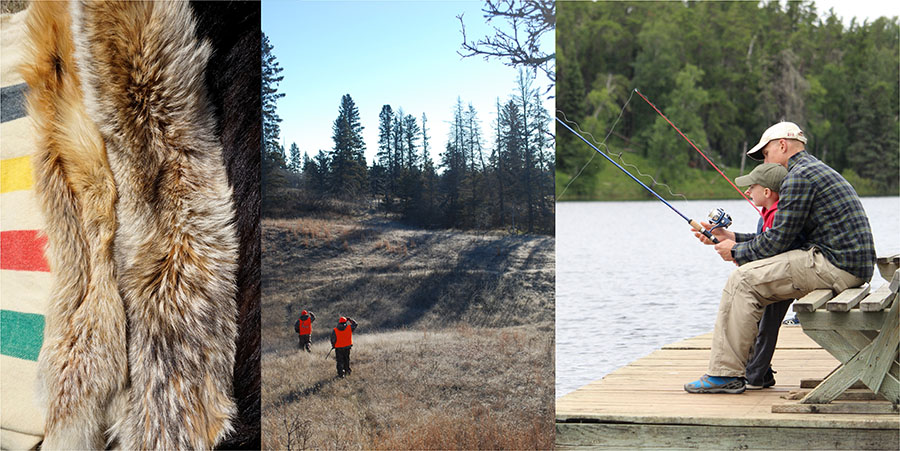A valid Manitoba Fishing Licence is required to fish in provincial parks. Be sure to read the annual Angler’s Guide for regulations. Licenses can be purchased online at manitobaelicensing.ca.
Aquatic Invasive Species such as zebra mussels can have detrimental effects on our waterways. Specific regulations regarding watercraft are in place. If you plan on enjoying the many lakes and rivers in provincial parks, please learn how you can stop the spread of aquatic invasive species here manitoba.ca/stopais.
Recycle your used fishing line! Manitoba Parks has partnered with Clear Your Gear, a fishing line recycling program. Improperly discarded fishing line can last in the environment
for up to 600 years and is the leading cause of entanglement issues for people, property & wildlife. Discard your used fishing line in Clear Your Gear receptacles at boat launches and popular shore fishing areas across the province. Visit clearyourgear.ca for more information on this program.
Ice Fishing Shelters may be used on waters within provincial parks subject to the following restrictions:
- Shelters must not have outside dimensions of more than 10 square meters. The name and address of the person erecting the structure must be clearly marked on the outside of the shelter in block letters at least 5 cm (2 inches).
- Shelters must not be located for more than a 24-hour period within 50 metres of the shoreline in front of a designated vacation home lot, commercial lot or private land lot, as designated or defined by the extension of the side property lot lines. Ice fishing shelters must not be located on or within 50 metres of designated snowmobile trails. Ice fishing shelters are not permitted in park areas designated as Wilderness Land Use Category.
- Shelters must not be supplied with and cannot be used for overnight sleeping accommodation.
- Open liquor is prohibited in ice fishing shelters and regulations are enforced by Conservation Officers.
- Human waste shall not be disposed of on the ice. Privies are not permitted. Portable containers that are "packed-out" each day are recommended.
- All garbage shall be removed from the shelter on a daily basis and disposed of appropriately.
- Fuel may be stored in ice-fishing shelters in portable containers of metal or plastic conforming to CSA-B376 and not exceeding 30 litres capacity. All spills must be recovered and the recovered material (with snow and ice) must be transported in a spill-proof container for proper disposal at a Licensed Hazardous Waste Disposal Facility.
- Unless informed by a Conservation Officer that shelters must be removed earlier because ice break-up appears imminent, shelters must be removed from ice-covered waters by March 31st in the Southern Fisheries Division and by April 15th in the balance of the province. Shelters that have been removed from ice-covered waters may not be left on Crown lands, including Provincial Park lands.




